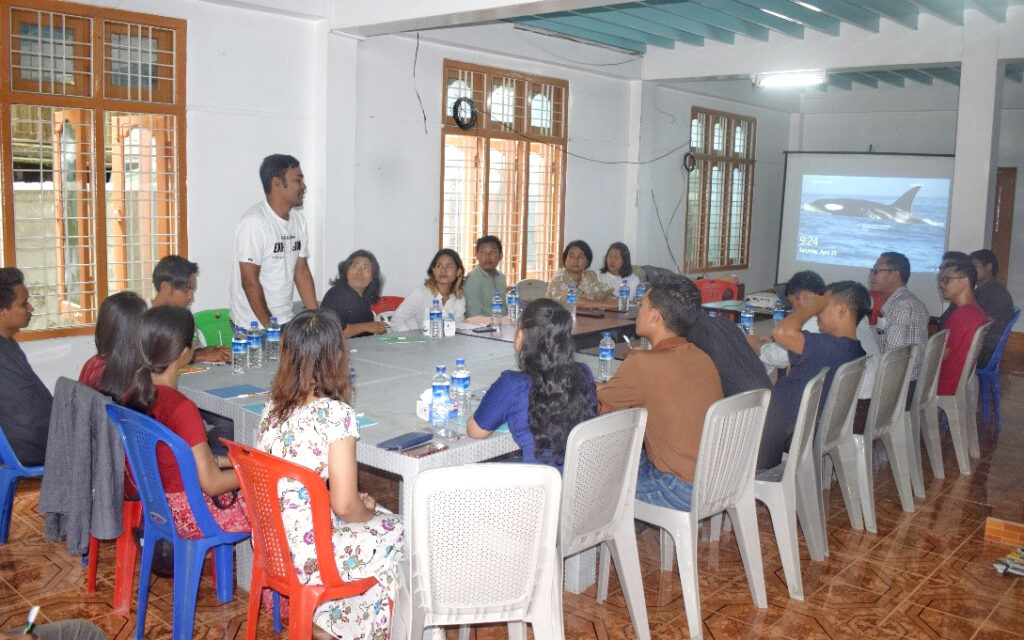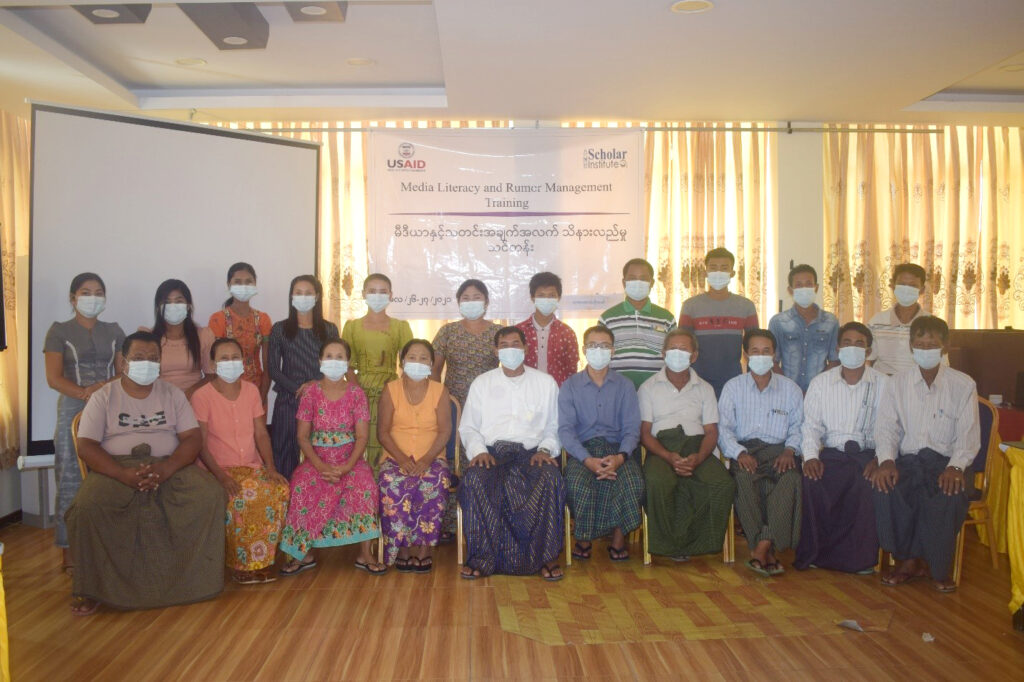Governance Program is one of the four main programs of Scholar Institute. This program is designed to promote good governance, and social accountabilities in public and private sectors by fostering multi-stakeholders’ involvement and accountability in development planning and service delivery. The program is designed to promote dialogues, and effective communications and engagement between the mentioned development actors for the overall welfare of the people in natural disaster affected areas. Through this program, we organize capacity building trainings, advocacy trainings, stakeholders’ workshops, and other related activities in close coordination with other Implementation partners.
Tat Lan Project (Phase I & II) (2014 – 2016)
Scholar Institute in partnership with Oxfam in Myanmar to support the governance component of Tat Lan funded by LIFT, ensuring strong engagement between state and township governments with the programs, and supporting the ownership of the program by both communities, civil society organizations and government officials.

The Tat Lan Program is implementing with the purpose of improving the livelihoods of 214 severely and moderately cyclone affected communities in the townships of Myebon, Pauk Taw, KyaukPhyu and Min Bya in Rakhine State. The activities of Tat Lan fall under the following technical areas: Infrastructure, Fisheries/Aquaculture, Agriculture, Financial Services, Information Management, Village-based planning process, Cash for Work Programme, Governance component, and Gender component

Responsible, inclusive and conflict sensitive investments project in Myanmar in partnership with Oxfam Myanmar funded by Oxfam Hong Kong (2017 – 2019)

Overall aim
Private sector companies investing in Rakhine State take steps to act more responsibly in the development of the SEZ.
Objectives:
- Increased trust and engagement between private sector actors, decision makers, CSOs and communities on responsible business practices in Kyauk Phyu SEZ.
- Decision-makers at state and union level engage in informed policy dialogues on responsible, inclusive and conflict sensitive investment in Myanmar.
Outcomes
Oxfam will work in partnership with national NGO Scholar Institute to achieve the following four outcomes:
- Communities, CSOs and investors develop a shared understanding of the potential impacts of international investment on communities in Kyauk Phyu
- Communities, CSOs and partners have increased capacity to engage with decision makers within Kyauk Phyu SEZ on conflict sensitive and responsible business practices.
- Key private sector and government stakeholders at township at State level are informed and engaged on the opportunities and challenges for responsible and inclusive investment in Rakhine State.
- Key private sector and government stakeholders at a national level are informed and engaged on the opportunities and challenges for responsible and inclusive investment in Myanmar.
Social Cohesion for Better Service Delivery Project in partnership with Search for Common Ground, funded by European Union (2018 FEB -2021 April)
Overall objective of the project is to enhance civil society organizations and local authorities to governance and development process

The specific objective of the project is to strengthen civil society organisations, especially women and youth organisations, in their collaboration with local authorities and provision of services to divided communities in Rakhine State. The project has been designed to deliberately take a moderately paced, participatory and bottom-up approach that effectively manages and remains responsive to the complex conflict dynamics in Rakhine State.
The specific objective addresses the limited opportunity for CSOs and especially women and youth leaders to discuss, identify and address issues that directly affect them and promotes equal participation at the community level and in public decision-making.
The project logic addresses issues related to knowledge and communication barriers to support Local authorities, together with CSOs, and to develop inclusive and accountable processes recognizing and supporting the ethnic and religious diversity in the State. It recognizes that a lack of inclusion of youth and women in decision-making impacts on the services they receive for healthcare, social care, education, water and sanitation. By engaging women and youth leaders, women and youth beneficiaries will see improved services for their populations and will be empowered to participate in service delivery processes.
Enhancing the resilience of conflict affected communities through the strengthening of civil society organizations in nine townships in Rakhine State in partnership with Relief International, Rakhine Women Initiatives Organization, Funded by European Union
(Civil Society Strengthening Project) (2022 Jan – 2023 Oct)
The overarching goal of the project is to increase the resilience of communities in Rakhine State through the strengthening of civil society mechanisms which enables them to prepare for, and reduce the risk of, future shocks.
The goals will be achieved through the three tracks of contributions:
The first approach is to strengthen the capacity of 80 established CSOs to responds to humanitarian, development and peace-building needs. The second approach is to reach to civil society at the community level and increase the capacity and inclusiveness of community-based organizations in Muslim villages and IDP sites, so as to enable community mobilization around local concerns and inform humanitarian actions and to bring these initiatives and voices together to strengthen CSO coordination and networking system for shared planning, learning and advocacy for the needs of Rakhine State as third approach.

Service Delivery for better service Delivery Project ( Phase II ), funded by DAI-USAID-CSP project ( 2020 – 2021 )
Project goals
- There will be increased opportunities for engagement between village development committees
- Village development committees will be equipped with knowledge and skills on how to respond to community development needs
- Government department officials will have a greater understanding for community challenges and priorities

